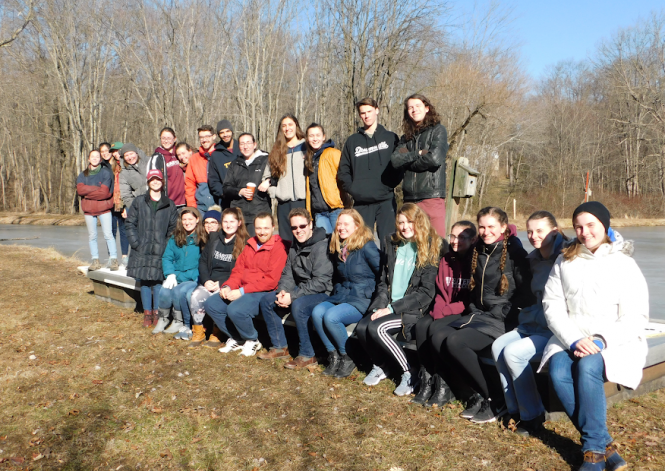
I’m sitting in a coffee shop reflecting on my recent return from my last winter retreat, thinking about Faust so I don’t have to think about saying any more goodbyes. Faust makes a deal with the devil; If I can experience just one moment of perfect happiness, says Faust, I will in that moment drop dead and deliver my soul to hell. As bargains go, this is an even worse one than Esau selling his birthright to Jacob for a bowl of soup. But I think I’m growing to understand Faust’s motivations: have any of us ever experienced a moment of actual perfect happiness?
While I loved my experiences on this final retreat, I knew going into it that it was final. And I could forget that, briefly, when I was shooting hoops in the gym, but it was a lot harder to forget when I was packing up my duffel bag before the last supper. Perhaps dropping dead means something like: give me an experience outside of time, and then let me escape the cruelties of time altogether. Maybe that is Faust’s motivation in the story.
and place is always and only place
and what is actual is actual only for one time
and only for one place,
I rejoice that things are as they are.”
What does it mean to rejoice in temporality? What does it mean to find value in endings, in finality? What does it mean that I’m sitting in a coffee shop with my roommate, a junior, realizing that all I really want is just one more year? Is that too much to ask? “And what is actual is actual only for one time…”
There were seven of us seniors on the retreat this year. At various points during the weekend, we would find ourselves silently watching the underclassmen gathered together to sing or play cards or quietly converse. I felt a certain kind of pain in those moments, a pain that in hindsight reminds me of Frodo and Sam on the hike to Mount Doom when they look up and see the loveliest of stars. They remember that while Beauty is always good for us, no one ever said that it won’t also wound us. But it is indeed beautiful, the star and the freshmen and the slightly frozen lake on which we dared not step. It is good that this exists, as Josef Pieper has taught us to say: it is good that these people exist, and that these places exist, and that these particular times are set apart for us for our mutual joy. The community here is beautiful, but like anything beautiful, it is also painful to say goodbye.
Yesterday, I asked one of the freshmen how he enjoyed the retreat, and his eyes lit up. I don’t really remember what he said, because I was so focused on his obvious excitement. I might have been sad if I saw in him my freshman excitement, but thankfully in that moment I was unaware of how I’d changed. And I wonder now if that lack of self-awareness is key to the rejoicing? We “rejoice that things are as they are” because what is real is good, and participating in the real is good, and all that we have experienced together is good. Next year, we seniors won’t be at the winter retreat. And that’s okay. It is enough to know that the retreat will continue, that the joy will continue. It is more than enough.
Anthony Barr is a senior Templeton Scholar studying History, Literature, and Orthodox Thought and Culture. He frequently writes for Ethika Politika, University Bookman, and Circe Institute and has done research on political theory, education policy, and civic and moral virtue. In his spare time, he enjoys reading poetry and playing ping-pong.








